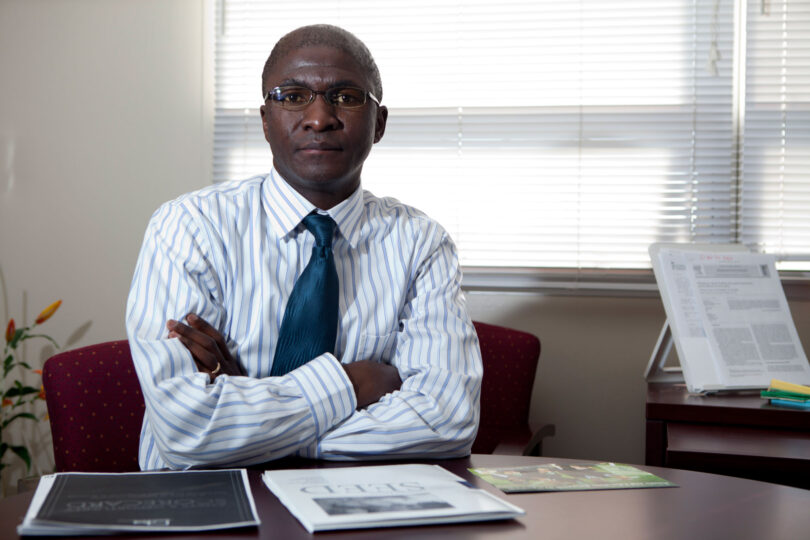David Okech studies how to make the lives of children living in poor households better.
Specifically the assistant professor in the School of Social Work looks at ways that low-income families can build financial assets that can help pay for college, start a small business or make a down payment toward the purchase of a home.
“Assets are financial resources that families can use for the long-term development of their children,” he said. “People always ask if somebody’s poor, how can they save? But yes, poor people can save if there are sufficient institutional structures to help them. In other words, income alone is not the only determinant of saving and asset building.”
But it takes more than a job to build financial assets, he said.
“Many people make assets through employer-based programs like matched retirement accounts. If you have a good job, you’re going to have assets because your employer is going to put away some money for you,” Okech said. “But if you’re self-employed and you do not have a retirement plan or an institutional process that facilitates as well as subsidizes saving for you, you are likely to save in a more random and less effective fashion.”
When low-income families save money for a college education or post-secondary training for their children, they’re not only helping their children, but their grandchildren as well. Having income can help families stay afloat and get by, however, assets are important in helping families to not just get by, but to get ahead, Okech said.
“Financial assets can be passed down to the next generation, but income may not,” he also said. “You cannot pass a job to your children if you are sick or if you die, but assets can be transferred. This is why when it comes to long-term development for kids, assets are very, very crucial.”
Okech, who teaches courses in community practice, policy, research and international and global social work, became interested in asset building as a way to continue the work he did in his native Kenya.
“In Kenya I was involved in relief and development work. When I came to social work, I wanted something as close to development work as possible, so asset development became that thing,” he said. “The U.S. is past the stage of setting up basic infrastructure like roads and hospitals as compared to many developing countries. But still we have people in this country who cannot get ahead. Development in this country means something different. So seeing family development from one generation to the next through asset building made a lot of sense.”
Now Okech and his wife, Christine, have other reasons to be interested in asset-building: their twin 9-year-old daughters, Elise and Amanda. Having children often makes people more willing to save for the future, he said, no matter how much money they make.
“You have to think long-term. You have to begin to come up with strategies and put practices in place right now to deal with the causes of intergenerational poverty because what you’re seeing now is the effect of past generations of poverty,” he said.





